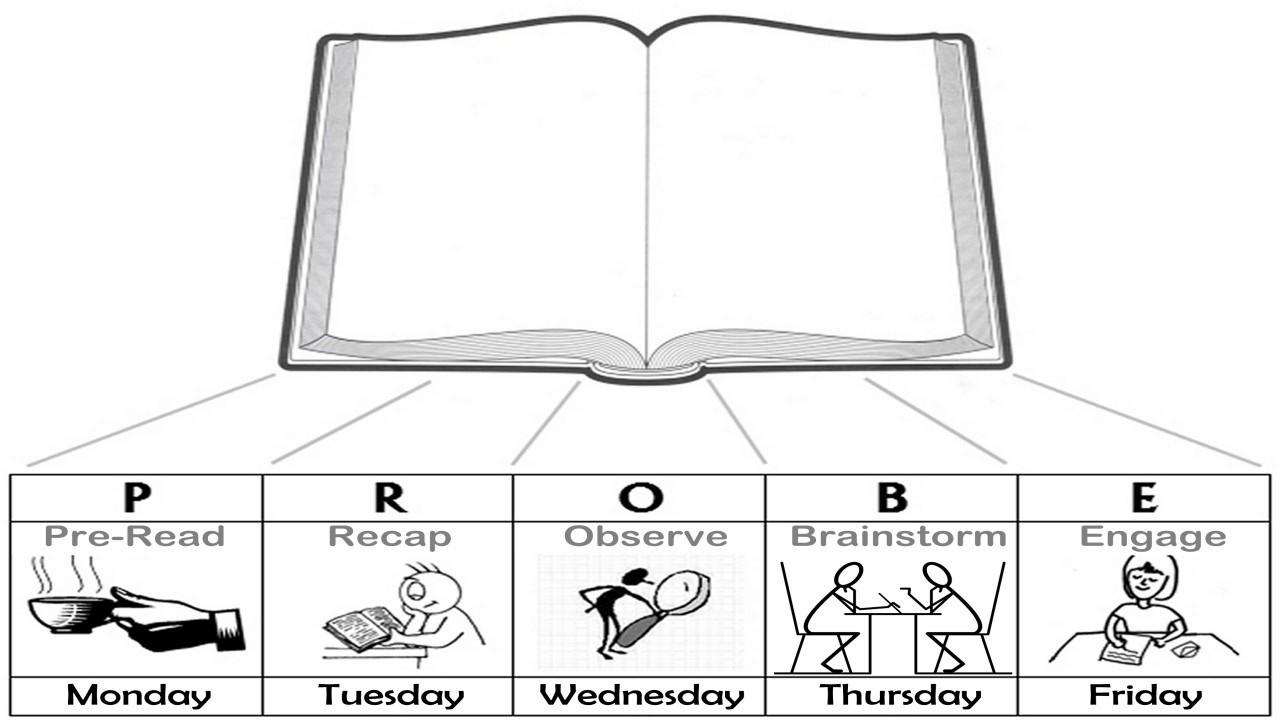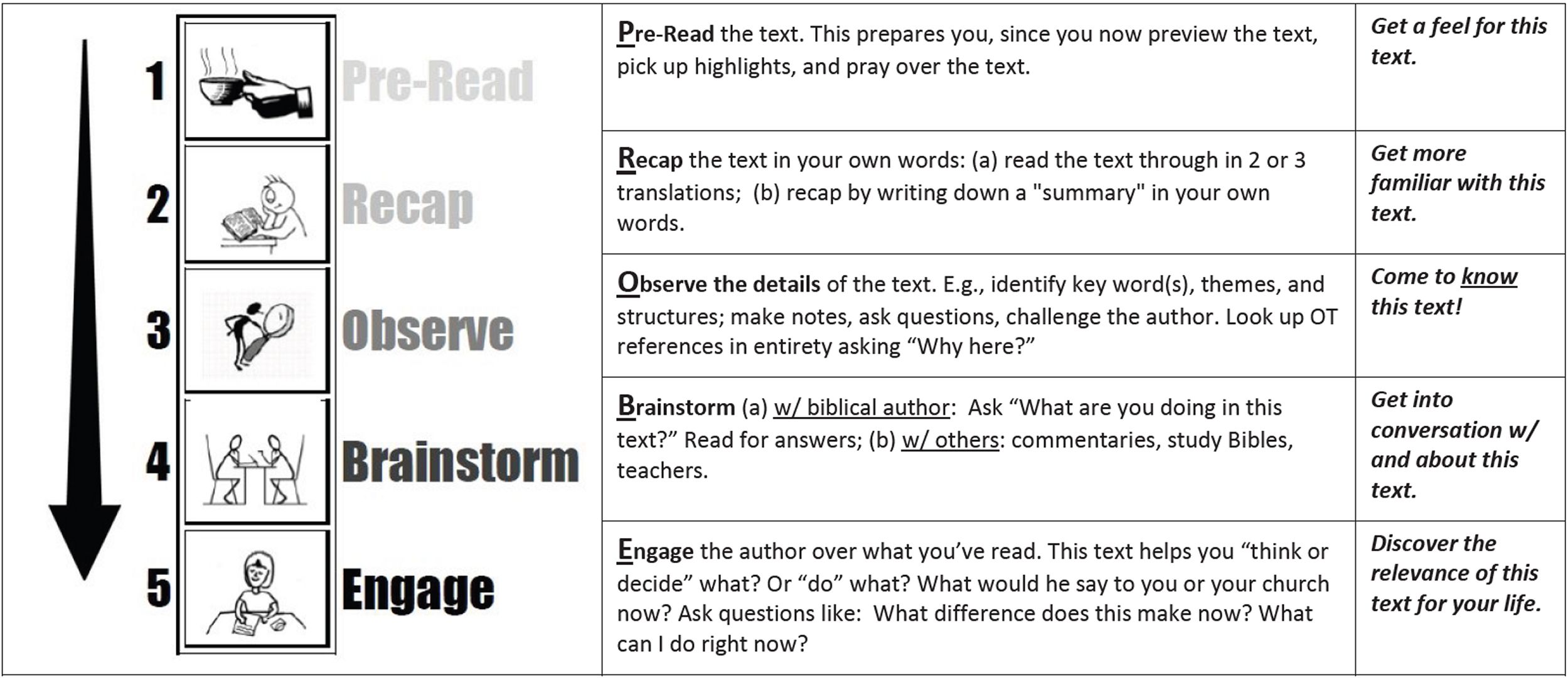
PROBE & Biblical Conversation
Sep 17, 2021Yahweh was passing by.
Before him a raging wind
digging into the mountain,
throwing rocks everywhere.
Yahweh was not in the wind,
so, after the wind, an earthquake.
Yahweh was not in the earthquake.
so after the earthquake, fire.
Yahweh was not in the fire.
And then after the fire . . .
A soft whisper.
When Elijah heard that,
he pulled his robe over his face,
came out of the cave,
and stood at the entrance.
Then came a voice:
"What are you doing here, Elijah?"
(1 Ki. 19:11-14)
What an incredible moment: when we hear God speaking. No, I'm not deluded enough to think I'm Elijah. Nor do I think I am perfect in all my dealings with biblical texts. I don't try to be perfect, but I do make an effort to be responsible, contextual, and conversational in all my dealings with biblical texts. And in advocating this cause I have very few hesitations.
There are some authors, Bible teachers, preachers, and other lovers of God who challenge and move and inspire me through their careful and skillful engagement with biblical texts. I am grateful to and for all of them---a wonderful community of conversation partners.
And then there are some others. They live and move in what I tend to call “popular Christianity,” and their handling of our community scriptures makes my skin crawl. It's frustrating being around this in some of our churches today: they have a lot of honey-sweet talk about how they love and adore the Bible (which in itself is commendable); but when you watch how they read and apply it---how they actually handle our precious biblical texts as if they were the big self-help book from the sky---they could easily replace any biblical text with songs from the Beatles or from any other source that makes us feel warm and tingly.
Overstatement?
I wish.
A woman recently told me, "I don't want to know what the Bible said to those people; I just want to know what it says for me now." Several preachers I know personally will, week after week, preach sermons from the Bible that model for their hearers just how to "use" the Bible as life's greatest self-help book. And they do not care what text they have to wrest from its context to do it!
 Are these evil people? Of course not. Is this an evil practice. You bet it is. Am I just being picky? Well, I guess if we don't really care how we handle biblical texts, then yes I am. Actually, these kinds of attitudes and so-called reading practices are reprehensible. They not only disrespect the book we call "The Bible," they are helping to undermine our entire call to a God-focused life.
Are these evil people? Of course not. Is this an evil practice. You bet it is. Am I just being picky? Well, I guess if we don't really care how we handle biblical texts, then yes I am. Actually, these kinds of attitudes and so-called reading practices are reprehensible. They not only disrespect the book we call "The Bible," they are helping to undermine our entire call to a God-focused life.
There is a way out of this. Become an advocate for being responsible with every biblical text! Stand up, show some guts, and decide to ask (require!) our Bible teachers to be more responsible with our biblical texts. I don't mean that we should be obnoxious about it. I do mean that we should stand up for it and not accept being silenced . . . even if we are not teachers. But if you are a teacher of others on any level (from children to adults---a Bible class teacher, a group leader, a preacher), then decide that you yourself will be more responsible when you handle biblical texts!
What Are You Doing Here?
What if I told you that you could start a deep-level conversation with a biblical author, just like sitting down over coffee with a friend? What if you came to see that such a careful approach could literally transform your Bible-reading life. Indeed, your very LIFE!
I'm not talking about gabbing your way through the Bible; or having aimless "life-group sessions" that merely use the Bible as a mirror for every topic we have opinions about and want to slap a Bible verse on to make it sound holy. I'm talking about responsible, contextual, and yes, conversational (interactive) biblical text study. I'm not saying all life-groups are bad; I'm saying all the ways we typically abuse biblical texts should not be excused under some kind of syrupy banner of "what does it really hurt?" We need to stop this and become advocates of a much better approach.
But how do we do that?
Enter PROBE. PROBE is the best and most productive way to read biblical texts! It is not a gimmick. It's an art that can be practiced and learned. It's the best-of-the-best Bible reading practices brought together in 5 easy-to-remember steps.
And here is the promise: When we take PROBE seriously as an alternative to the common bad practices of hopping, skipping, and jumping all over the Bible and calling that "Bible Study," it revolutionizes how we read and apply the Bible to our lives; it changes how we craft or even listen to sermons; it supercharges how we apply biblical texts to life.
PROBE practiced well takes the best of the Bible reading concerns and puts them into an easy-to-remember, step-by-step (5 steps) approach so that you don't forget anything. It turns the promise of good reading habits into an art!
The Art of Biblical Conversation
 PROBE, of course, is an acronym. To illustrate this, you could take this story of Elijah and the cave (say all of 1Kgs 19) to practice PROBE-ing.
PROBE, of course, is an acronym. To illustrate this, you could take this story of Elijah and the cave (say all of 1Kgs 19) to practice PROBE-ing.
So you would read this whole block of text each day for 5 days, over and over again throughout the week, but in different translations and with a different agenda each day (described below).
We're not talking about hours a day (unless you were just incredibly eager or focused); we're talking about only 15-20 minutes a day. Here it is, step by step:
Step 1: Monday: Pre-read and Preview the text, surveying it.
You skim through it, trying to pick up some highlights. You take a few notes. And you pray about it all, of course (as with every reading).
Step 2: Tuesday: Read and Recap the text in your own words: just you and this text.
a. You read the whole text through, beginning to end . . . again. As much as possible, in one sitting. (For the Elijah/cave story, this is easy.) This is where you read the text multiple times and in multiple translations. At this point, you ALWAYS stay within this one document, not allowing your reading of it to be contaminated by other texts or ideas.
b. When you finish reading, you recap. By recap I mean you actually write down a "summary" in your own words of what this text says.
Step 3: Wednesday: Observe the text: Turn your reading into a conversation with the author.
a. Taking notes, Asking questions, Challenging the Author, Going back and re-reading the text to find answers.
b. For example, you might ask, "How does the whisper of Elijah function in this story? In the larger context? How might early readers have responded to this? Forget yourself right now, you'll get to that later. Right now you are on a quest. You might do word studies here, using resources like Young’s Analytical Concordance, or better, Bible Software (like Accordance, Logos, or Lumina) to help you examine the text. (Just stay away from commentaries. That's next step.)
c. Also, how is this text related to other texts outside of this one? If it quotes other texts, read those too. Not just single verses, but whole contexts.
Step 4: Thursday: Brainstorm: Now, and only now, you're ready to talk to others.
This is where you invite others to the table: Bible commentators, encyclopedias, and dictionaries; or friends, or a preacher or teacher. Just don't start here! (That is one of the biggest mistakes Bible readers make, starting here.) Now that you've done your own reading work, you can converse with others. Only now, you invite them as conversation partners.
Step 5: Friday: Engage: Here you focus on “what difference all of this makes for my life!”
Now, tell this biblical writer what you think of this text. Yes! Do that! So, for example, how does the whisper of Elijah function for you now? So, now you start asking questions like: So what? What difference does this make now for me? For my church? For my world? What principles relate to issues I face now? What can I do today that will put into practice what I have learned from this text? And other questions like these.
 Order with Flexibility
Order with Flexibility
You ALWAYS, ALWAYS, ALWAYS keep the steps in the same order. No matter who tells you to skip to the commentaries on step one, you don't EVER do that! You never go to anyone else or any other source until you have spent some significant time in the text yourself.
Even so, PROBE is flexible. For example, you might have a mini-study or intensive study where you spend hours on a Saturday on a single project. You can go through the entire 5 steps on one day---just keep them in the same order.
Or, if you are following a weekly schedule, you might prefer to combine PR the first day and take two days on Brainstorm.
Or for a major study, you might spread these steps out over several weeks. This is called PROBE Prime, and you still (and ALWAYS!) keep the steps in the same order.
PROBE is not "fast and furious" reading. This approach intentionally helps you slow you down and asks you: "What are you doing here?" The story of Elijah and the cave is a great example to practice with because it is so short and engaging. Even so, this approach is appropriate for every text (every book, letter, Psalm, etc.) of the Bible.
Not New
PROBE is not a new idea: it is actually the best of Bible reading practices brought into one place—an easy, step-by-step approach that helps you cover all the bases in the most helpful order. It is reading with a goal in mind: to put into practice what you read in conversation.
Here it is again. . .

PROBE is an ultimate way of showing respect to biblical texts.
Do you Want More?

If you want more, here is a major new book explaining this. It came out January 2021 and "fleshes this approach out" in detail. To see the book and its contents, and to thumb through the book, go here now.










